Sir Henry Cecil: on the anniversary of his death we recall the legendary trainer
In a memorable 2010 interview the trainer talks to Steve Dennis
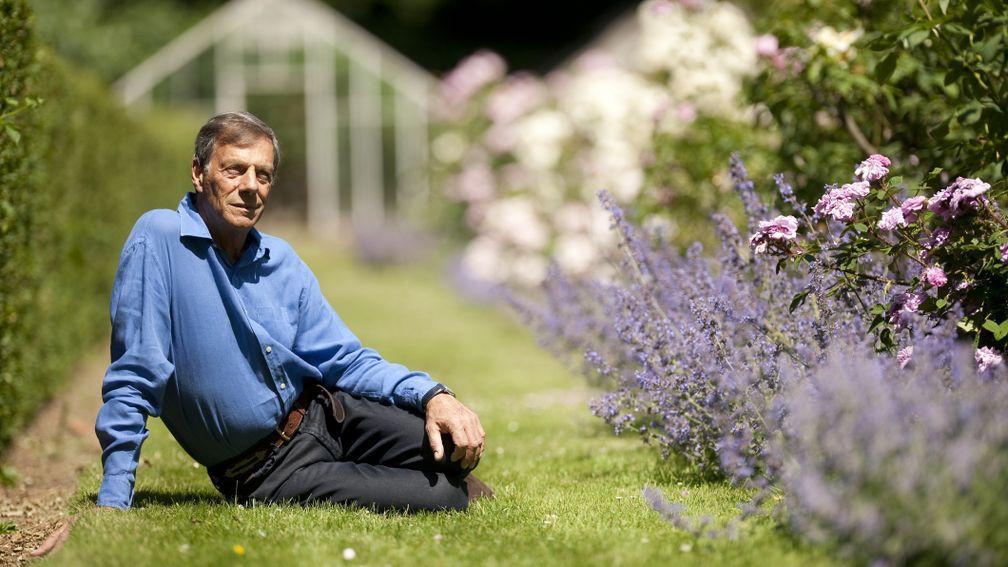
Published in the Racing Post on July 2, 2010
Asparagus, sweetcorn, tomatoes, leeks, Russian onions, garlic. It's not a shopping list. It's hard to imagine Henry Cecil ever needing to browse the fresh produce aisle at the Newmarket Waitrose, for this quartermaster's delight of a garden seems to have it all.
Cecil is giving the tour of the Warren Place acreage, a private, quiet Eden overlooked by the boxes in the fillies' yard, a head poking out here and there in curiosity. Here is a blackberry bramble, a shock of wineberry plants, a bed of strawberries. Over there, indicated by an airy sweep of a striped shirtsleeve, is a walnut tree, a pomegranate tree, a grapevine or four, boughs heavy with figs, a hothouse steamy with orchids.
Cecil rattles off the names, too swiftly, too many to write down. He offers a handful of strawberries, advises that they may be a week from optimum ripeness. They taste just right, but Cecil knows his garden as well as he knows his horses, knows when a strawberry needs another week, knows when an Oaks filly is in full bloom.
And all around ramble his famous roses in great sweet-smelling bushes, avenues of heady scent. He darts in and out, identifying, explaining, cutting a flower here and there and passing it on. One smells exactly like a sweetshop; he grins.
"I find gardening very relaxing, I love putting new things in," says Cecil, 67. "I'm very lucky that I've got a wonderful old gardener. He only works part-time now, but his son is full-time here.
"I don't do anything manual – I used to prune all the roses, but I only do some of them these days. It's just lovely to go for a wander round in the evening.
"There are peas here grown from peas found in Tutankhamun's tomb, that germinated after 3,000 years. They grow three times as tall as a normal pea plant and the peas are about three times the size of an ordinary pea, very light green, very sweet – they're delicious.
"I think I'm the only one who's got them now. I grow too much of everything, there are rows and rows of it, so I end up giving quite a lot of it away."
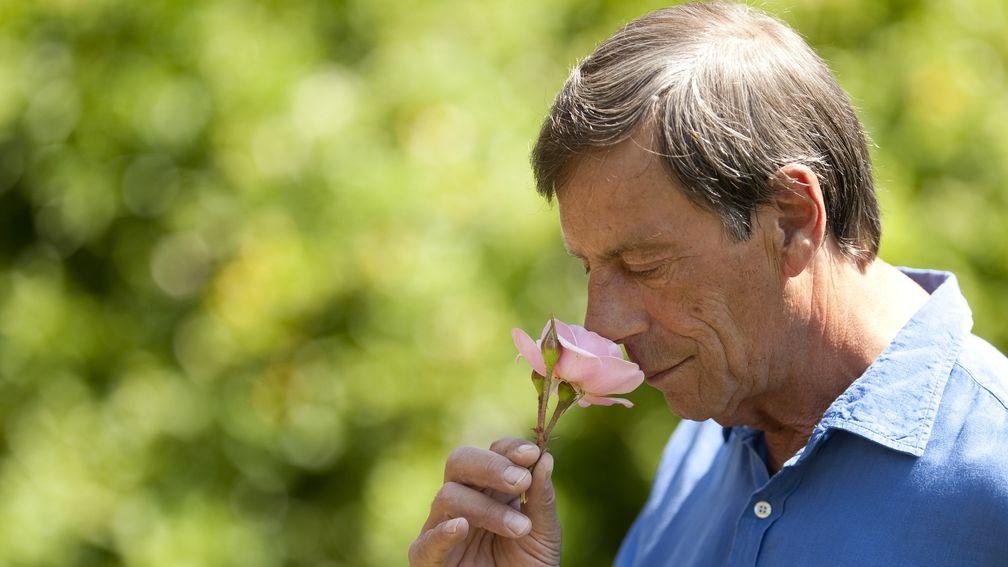
Later, his wife Jane says that after Royal Ascot – which despite the victory of Timepiece had been disappointing overall after the defeats of Twice Over and Manifest – Cecil came back and spent the Saturday evening harvesting his asparagus. Every row picked must have steadily erased the pressures of the week, Cecil clearing the beds and clearing his mind at the same time. "I love asparagus," he says.
He looks happy. His fringe once more flops foppishly over the tanned face, a lopsided grin never far from his lips. It's the same lopsided grin that greeted the press gang in many, many winner's enclosures, Cecil a willowy figure asking as many questions as he was asked, shoes by Gucci, ties by Hermes, wit by Gillette.
Those were the good old days. More recent memories are of bad days, bad years, bad news in every bulletin. The last decade has been almost a lost decade for Henry Cecil – and what losses there were within it – but here he is still, his yard newly replenished with talent, his life reinvigorated.
"It wasn't that enjoyable," he says, in that very English manner that perpetually makes light of misfortune. "Over the years I'd been spoiled, every year was a good year. I've always said that racing brings you down to earth, so there's no point getting too pleased with yourself.
"Things went wrong in my life, in my personal life and my professional life. For eight or nine years I had quite a moderate time of it, but I never thought of calling it a day.
"I'd hate to go out at the bottom, I don't like being an also-ran. I like winning. It was a challenge to get back."
That use of 'moderate' is enlightening. Cecil’s talents for self-deprecation and understatement are so finely honed that if he had won a VC he'd have made sure it was gazetted as 'all quiet on the western front'.
The seeds of his decline were sown when Sheikh Mohammed removed all his horses from Warren Place, whisking away the cream as seed-corn for his Godolphin project. At the same time, Cecil's old guard of powerful owner-breeders were slowly and surely dying out; Lord Howard de Walden, Louis Freedman, Jim Joel, all irreplaceable.
There were still Classic winners and star names, but fortune's wheel was unmistakably beginning to roll around the other way, over Cecil's toes. There was far worse in store. In 2000, his twin brother David succumbed to cancer at the same time as Cecil's second marriage was unravelling, concomitant with his receiving a five-year drink-driving ban. And all the while the desolation in his personal life was mirrored by the slow devastation of his 30-year career, a steady drip, drip, drip eroding at the core of his business.
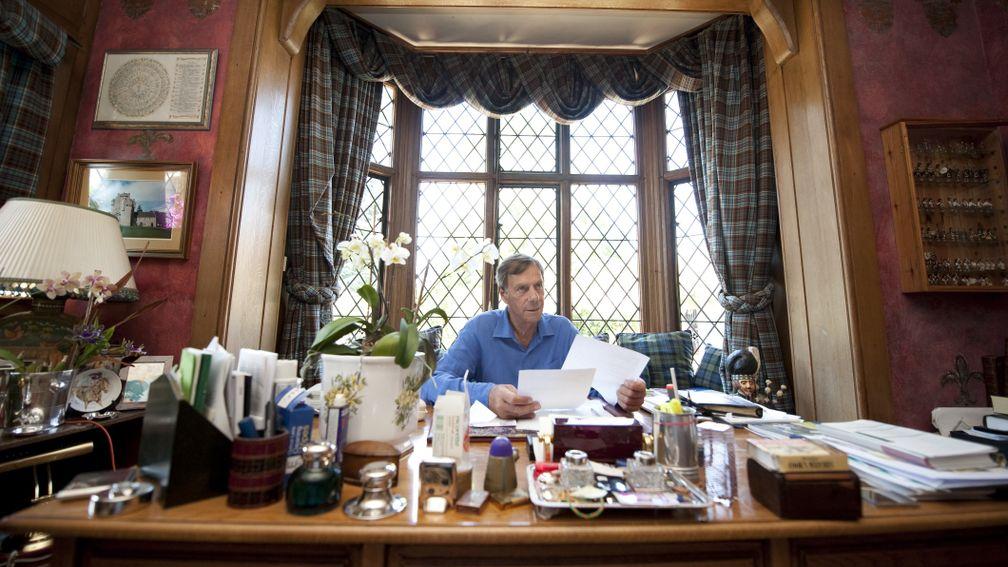
In 2005, he trained just 12 winners. Cecil was almost off the map. There was yet worse to come. Life, almost as if exacting full payment for all those years in the sunlit uplands, had one more body-blow to deliver. A year later, Cecil disclosed that he had been diagnosed with stomach cancer. "It was quite depressing," Cecil allows, something easier to admit with the sun on his face, a fountain playing relaxing water music over a nearby pond.
"I'd never experienced depression before, but I went through a very long, depressing time. People would tell me there's always light at the end of the tunnel, so I was determined somehow to get back, and I am gradually getting there.
"Jane has been a great help to me in so many ways, a great support. My personal life was better, I was happier there, no pressure any more, and financially I was getting back on a sounder footing – I wasn't on a great footing anyway, what with being married twice.
"I was down to about 50 horses and they weren't particularly good ones. So when everything settled down in my personal life, I hoped – because I like a challenge – that I had a reason to persevere for everyone's sake. I've got a son who's growing up . . . it was very important that I got back somehow.
"Once I had peace of mind . . . I'm happy now, I'm enjoying it again." He laughs, a little to himself.
Cecil no longer drinks and smokes only in moderation, as he copes with his treatment for cancer. He is naturally wary of the confessional, but is frank and very friendly despite discussing matters that have clearly caused him much distress and still frequently make his life unpleasant. "I don't particularly like giving interviews, but you've got your job to do and I've always got on well with the press.
"My health isn't brilliant, but I'm pleased that I'm still holding my own. I've got masses of energy, I'm still getting up at a quarter to five in the morning. I don't get tired and I feel pretty good in myself.
"I'm still undergoing treatment. I have what they call maintenance treatment reasonably regularly, and then a bout of stronger treatment once or twice a year.
"The doctors are more positive than they were before, I've just got to look forward. A lot of it is mind over matter. If you're positive and determined, you're healthier mentally and can cope with everything much better. If you're positive at least you've got a chance.
"I try not to think about it, although I used to think about it a lot. I enjoy life, I love life, I wasn't ready to go when it was diagnosed and I'm still not."
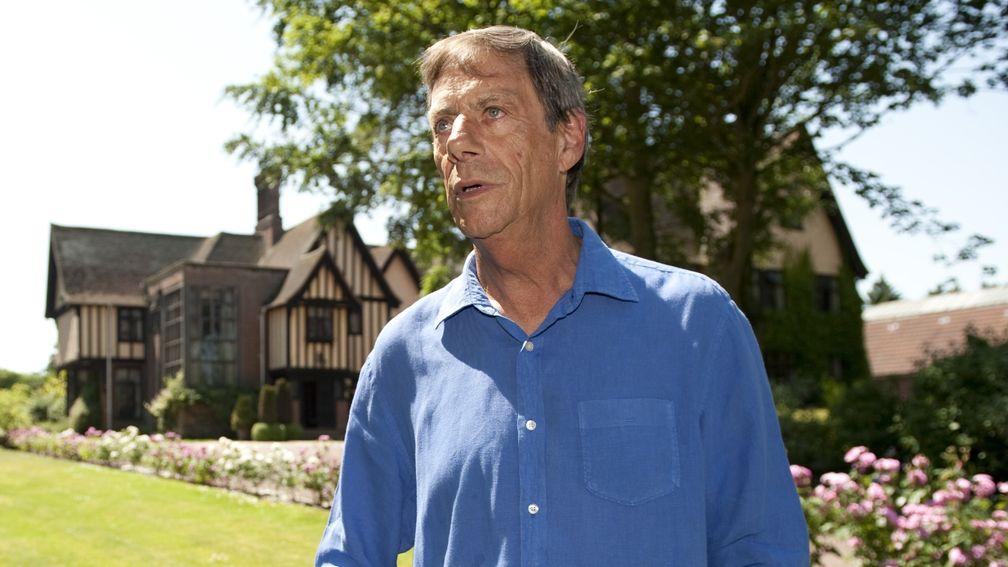
It's a sombre, thought-provoking moment, followed by a short silence. Then Lily breaks the spell. Lily is probably quite good at breaking spells of introspection, because it’s hard to ignore a small, elderly dog who is very pleased indeed to see her master. Cecil's just as pleased to see her.
There is much ado, much scratching, tickling, silly voices, licking, sniffing. Lily is 12 and has just had her hair cut; being a Belgian Griffon, she isn't overly blessed in the looks department but she looks very elegant in her new summer hairdo. Cecil holds her up in the air, cooing. "She's the love of his life," says Jane.
The tone suitably lightened, we see a different side of Cecil. If it hadn't been for the horses, it's clear that he could have embarked upon life as a champion trencherman, a modern Nicely-Nicely Jones, the equivalent of one of those weird Japanese who apparently eat 400 hotdogs in ten minutes. Where his smile once played around his lips, it now dances in his eyes.
"I eat pretty sensibly, pretty healthily, Jane's always making me things like beetroot juice," he says. "Because I've had a lot of treatment my system is a little delicate. If I went out one evening and dined on pork, I'd have a very upset stomach in the morning.
"But I used to be able to eat anything I liked. I remember eating a dozen lobsters one night in Dublin – it wasn't a big celebration, I was just quite hungry – but I couldn't do that now. It had no effect on me then.
"My stepfather was mad about fruit, he always had large crates of fruit about the place. There were five boys, it was a big family, it all got eaten.
"Anyway, one year I decided to follow his example and bought a big crate of satsumas, and I remember watching one of those epics like Ben-Hur, stretched out on the sofa watching the television. I counted how many satsumas I ate, and by the time the film had finished I'd eaten 97. And I was 100 per cent in the morning.
"I drove down to Goodwood once in my old Daimler Dart sports car. It was a terribly hot day and it didn't have air conditioning, so I stopped at all the petrol stations on the way back and bought an Orange Maid ice lolly at each one – by the time I got home I'd had 24.
"And there was the time I went out for dinner with Sandy Barclay. I ordered two dozen snails and he had some smoked salmon. He'd never had snails before and he asked to try one. I said 'no, I ordered two dozen because I wanted two dozen. If you'd like some, order some, because you're not having any of mine'. He ordered half a dozen, hated the first one, and I had the other five."
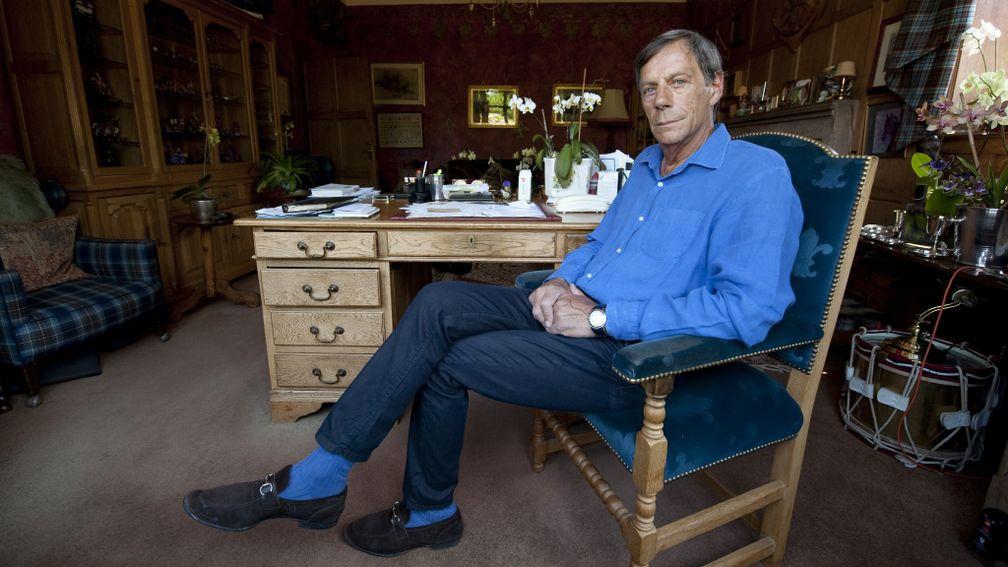
With Proust it was madeleines, with Cecil it's the citrus tang of a peeled satsuma. Next time he goes racing he'll no doubt be offered a tangerine or two, because almost without exception the great racing public treat Cecil with a blend of awe and adoration that the lean years have served only to intensify, although he'll no doubt deftly self-deprecate his way out of that discussion.
At first sight it may seem faintly bemusing that this minor aristo with the languid manner is reckoned a comrade-in-arms by punters and pundits alike, but Cecil possesses a common touch that endears. He is the very model of an amiable English eccentric, with his roses and lead soldiers and amusing repartee; such a deep well of personality, when allied to the conveyor belt of winners that previously flowed from Warren Place, has won him enduring affection.
When the winners dried up his loyal followers were unflagging in their devotion, staunch in their support as Cecil experienced life as underdog for the first time. People love underdogs, they love someone with pluck, they could see Cecil suffering from problems they knew all about and could relate to – death in the family, divorce, a failing business, cancer – and the bond held, strengthened.
For his part, Cecil refused to lie down and be trampled by his troubles. He wore the same face in austerity as he had in prosperity and won admiration instead of races. And when Light Shift restored him to the rank of Classic winner in 2007, the outpouring of joy was genuine and widespread, producing scenes almost unparalleled on a racecourse. We love tales of redemption, because they offer the possibility that one day it may happen to us too. Cecil was not the only one blinking back tears that day.
The afternoon Sir Henry Cecil moved out of the darkness and into the light
"It did surprise me really, that level of affection," he says. "I'm not sure whether everyone just felt sorry for me because I was ill . . .
"The public have always supported me, I think more so now because they realise that it's a challenge for me, that I'm trying to come back – I always feel they're behind me.
"I don't go racing as much as I used to but I enjoy it – not as much as I enjoy training horses but I enjoy seeing the people. They always ask me if mine will win, but I hate telling people to back anything of mine. I always just say we'll do our best."
There were no Classics this year, with Jacqueline Quest, Aviate, Timepiece and Bullet Train unsuccessful for various reasons, but Cecil is back in the top six in the trainers' table and, while the halcyon days of the 1980s may not come again, his recovery bears the stamp of authority.
Twice Over has a favourite's chance of bringing him a fourth Eclipse at Sandown tomorrow and there is a host of well-bred two-year-olds waiting in the wings for their cue, including All Time, sister to Passage Of Time and half-sister to Timepiece, Aviate's brother Air Traffic and a Galileo half-brother to Bullet Train called Frankel.
"I've always had late-maturing horses," Cecil says. "Obviously I've had plenty of fast two-year-olds – one year I think I had 80 two-year-old winners – but on the whole I've trained for owner-breeders who have provided middle-distance horses.
"It's a question of being patient – go with them rather than making them go with you. You have to watch them carefully, it's common sense really. A lot of people could do it if they had the chance.
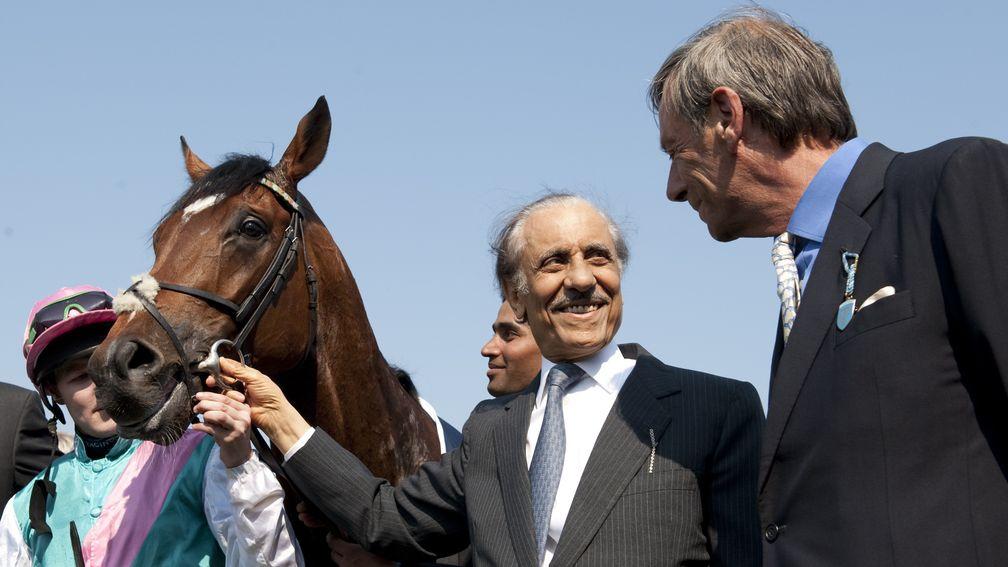
"I'm lucky with my owners, especially Prince Khalid and the Niarchos family, I'm under no pressure. Horses aren't machines, if they run when they're not ready to run you can do a lot of damage. And fillies are different, they're more highly strung, more temperamental, you have to be more of a horse psychiatrist than a trainer.
"I must say I like my two-year-olds, though, they're backward and have much more potential as three-year-olds. They needed time to develop and I've just started moving with them now – and they're half my yard. They'll be nice for next year. Overall, they may become a stronger bunch than this year's three-year-olds."
Talk of next year's potential dissolves easily into reminiscences of the heroes of the past, the great ones who left Warren Place as horses and returned as household names. Cecil has trained so many stars, but his obvious affection for his horses might suggest he retains a pecking order of favourites. He isn't playing that game.
"I never like to compare, because they're different distances, different times. I loved Wollow, he's probably as good as I've ever had. Oh So Sharp was fantastic, Kris – and then I've had animals who were brilliant but had problems, like Indian Skimmer; she was almost a cripple but she was brilliant, as good as any of them.
"Bosra Sham, if she'd had some feet – a lot of them have been really good friends to me, and when you've got very good friends you don't put them in order. I've been lucky because I've had some really good horses."
Once he could have knuckled under, given in, become yesterday's man talking about yesterday's horses – but he didn't. He pauses, as if the ghosts of the past are crowding in upon him. Then he says brightly: "Let me show you the gardens," and off he goes, leading the way, as he always has.
Cecil on . . .
Daniel Wildenstein
He wasn't that bad to train for, he was good really. He was a chronic diabetic and was prone to fluctuating mood swings. I liked him very much, he was a very interesting man.
The disqualification of Vacarme [1983 Richmond Stakes] was the final straw in our relationship, but it was a ridiculous decision. He won so easily and never touched another horse. That was wrong.
I was very annoyed. I was so furious that I left Goodwood and came home. I had intended to stay in Sussex for the whole week, but I came home rather than walk around looking sulky.
Race planning
The programme book needs looking into – unless you have to place horses, you're not aware of how difficult that job is. The people who devise the programme don't understand certain things, such as that three-year-olds don't come on a par with older horses until the end of July. But up until then there are all these races for three-year-olds and upwards, and it's very hard for them in that respect.
Also, there are so many handicaps because the racecourses and the bookmakers like them, but we must cater for the 'twilight' horses. People say you can find races abroad for that type of horse, but I train in England and there should be races here for them.
There are so few suitable races, and you might see that there are three better than you in the same race but there's nowhere else to go. I think race planning is a disaster.
Midday
She's coming back well and may go for the Nassau Stakes and the Yorkshire Oaks. She likes very fast going, but she's quite heavy-shouldered and I think she's better with a little bit of cushion in the ground.
She got a little jarred up in the Middleton on her reappearance, although I didn't expect her to win because she was giving away weight. I think she might be better over a mile and a half because she hits a bit of a flat spot when they start to quicken, and that's always a sign they want further.
Ambitions
I'd like to win the Dubai World Cup. I thought I'd win it this year and couldn't believe it when I didn't.
Next year, perhaps Twice Over will be given a better draw, and maybe I'll send him over there a little bit earlier, a week or so. I don't think horses improve after the age of four, but they do become more consistent, more reliable – especially fillies.
The track at Meydan is slightly tighter than I'd like, mind you. It's an amazing track, one of the seven wonders of the world, but I just wish the course itself was slightly bigger.
I've never won the Arc and I've never actually been that keen on the race. I prefer the King George. I find the Arc comes rather late if a horse has had a hard year. I nearly won it once, though . . .
Sir Henry Cecil died aged 70 on June 11, 2013
More RP Classics:
Magnificent Seven: 'Frankie had ridden seven winners and I said we might have lost between £8-10m'
Dave Nevison: the punter who came within a whisker of a £360,000 payday
Sergeant Cecil: slow burner who caught fire with amazing run into history books
Albert Davison: a master plotter who ensured Irish betting shops took a bashing
Ryan Moore: a fascinating insight into the mind of one of the world's greatest
Pat Smullen: It wasn't all about coming back to ride horses – it was just about coming back
Kieren Fallon: I never got a buzz out of riding; I saw it as part of my job
Trevor Hemmings: I got on well with Ginger but he and I would have clashed
Sir Michael Stoute: you should play it off the wicket and keep your standards up
Gordon Elliott: I wish I came on the scene ten or 20 years ago when Willie wasn't around
JP McManus: If I lose I don't have a bet for two weeks – it doesn't bother me
Corky Browne: the man who ran Nicky Henderson's powerhouse stable for 41 years
Fearless Freddie Williams: the legendary layer who took on the biggest punters
Harry Findlay: it was, and always will be, the easiest £33,000 I've ever won
The Racing Post newspaper will be back in shops to mark the return of British racing on Monday, June 1! With extensive coverage of all the racing, interviews with the biggest names, tipping from our renowned experts, writing from the likes of Alastair Down and all the cards and form, it's your unmissable guide to all the action. Pick up your copy on Monday.
Published on 31 May 2020inSeries
Last updated 11:02, 11 June 2020
- We believed Dancing Brave could fly - and then he took off to prove it
- 'Don't wind up bookmakers - you might feel clever but your accounts won't last'
- 'There wouldn't be a day I don't think about those boys and their families'
- 'You want a bit of noise, a bit of life - and you have to be fair to punters'
- 'I take flak and it frustrates me - but I'm not going to wreck another horse'
- We believed Dancing Brave could fly - and then he took off to prove it
- 'Don't wind up bookmakers - you might feel clever but your accounts won't last'
- 'There wouldn't be a day I don't think about those boys and their families'
- 'You want a bit of noise, a bit of life - and you have to be fair to punters'
- 'I take flak and it frustrates me - but I'm not going to wreck another horse'